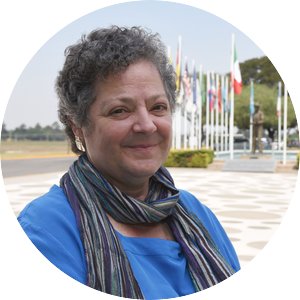Sustainable agrifood systems for a changing world requires action-driven science
The complexity and uncertainty we face in agriculture and land management is daunting. Science must rise to the occasion, to promote inclusive and environmentally sound agrifood systems, with resilience, in a rapidly changing world. Extreme weather, conflict, consumer price spikes, and epidemics highlight the urgent need to use action research, new data analytics, and agrodiversity to build buffering capacity. Transdisciplinary science is key to sustainable food, farm, and land use. To quote Borlaug, it takes ‘venturesome scientists willing to work across disciplines…’ The approach matters. Action research supports local solutions, to tackle the sustainability challenges of soil health, agricultural diversification and resilience. Discovery science must be closely linked to action-drive science to engage stakeholders and address the steep trade-offs, social-ecological complexity and uncertainties involved in making change. Emerging innovations to be explored in this talk include living labs, agroecology, open data and open-source technology that empower farmers, communities and scientists to work together.

Dr. Sieglinde "Sieg" Snapp
Sieg Snapp is the director of the Sustainable Agrifood Systems program at the International Maize and Wheat Improvement Center, which brings together global agricultural economics, systems analysis on agrifood innovations and agricultural systems for development in Africa, Asia and Latin America.
As a Professor of Soils and Cropping Systems Ecology at Michigan State University and Associate Director of the Center for Global Change and Earth Observations, she led research on sustainable farming, particularly for cereal-based, rainfed systems in Africa and North America.
Snapp first partnered with CIMMYT in 1993, when she developed the “mother and baby” trial design. This go-to tool for participatory research has developed farmer-approved technologies in 30 countries.
Snapp has partnered with local and international scientists to tackle sustainable development goals, improve livelihoods and farm sustainably. Her two hundred publications and text books address co-learning, ecological intensification and open data to generate relevant science.
